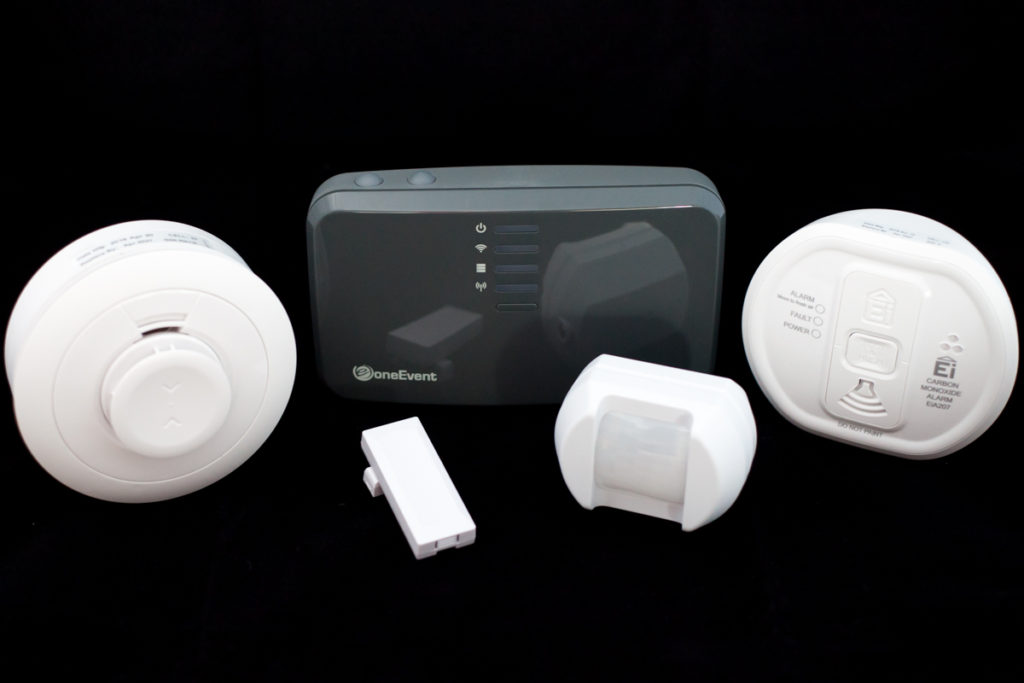
The 11 full-time employees of OneEvent have some strange jobs. For example, they spend hours setting things on fire, from Christmas trees to buildings. Or they flood homes, rapidly or slowly.
All of this is in the name of building a generalized machine learning capability that has been proven to spot smoldering fires about 20 minutes faster than the average smoke detector. Their product OnePrevent, which is made of sensors, a hub and the OneEvent software, has helped homeowners and hotels prevent thousands of dollars of damage.
For example, one hotel that was testing the OnePrevent hardware and service had just completed a pool repair soon after the sensors were installed. A few hours later, a pipe burst in the repaired area and it started spewing hot water.
The sensors quickly detected a change in temperature, humidity and even the mist generated by the steam, and the hotel was alerted to the problem. The hotel owners believe this saved them thousands of dollars in water damage.
Insurance companies have tested the OneEvent technology and the products are UL certified. The company, which has been developing the technology since 2014, started selling its first products at the beginning of this year and plans to officially launch at the upcoming ISC West trade show.
Kurt Wedig, the CEO of OneEvent, says the goal is to find more customers and also to attract companies who make sensors or who have security and home automation businesses.
Outside of the emphasis on machine learning to detect anomalies, I found two aspects of the company novel.
The first is that they have modified the sensors they use to start collecting more data if a change is detected.
For example, when the smoke alarm determines there is smoke, it starts sending data every four seconds. Normal smoke detectors detect smoke and when the smoke reaches a threshold they stop detecting and sound the alarm. This prevents the chance of a fire going undetected for too long, meaning less chance of loss of life. After all, if a fire alarm system is not up to standard in an establishment the owners can be liable for wrongful deaths or for the injuries sustained by those staying in that accommodation. Systems like this give the owners more peace of mind and offer their guests more protection.
The second novelty is that Wedig would like to use the insights generated by the OneEvent software to share with first responders if the property owner agrees. This is powerful for firefighters, who could get a minute-by-minute view of the growing fire, or see where hot spots are developing.
Of course, OneEvent isn’t alone in trying to gather granular data about the health of a building and share that information to prevent disasters. Honeywell, Johnson Controls and Tyco are all thinking about this topic, as are the insurance firms who could see a decline in claims if such tech were widely implemented.